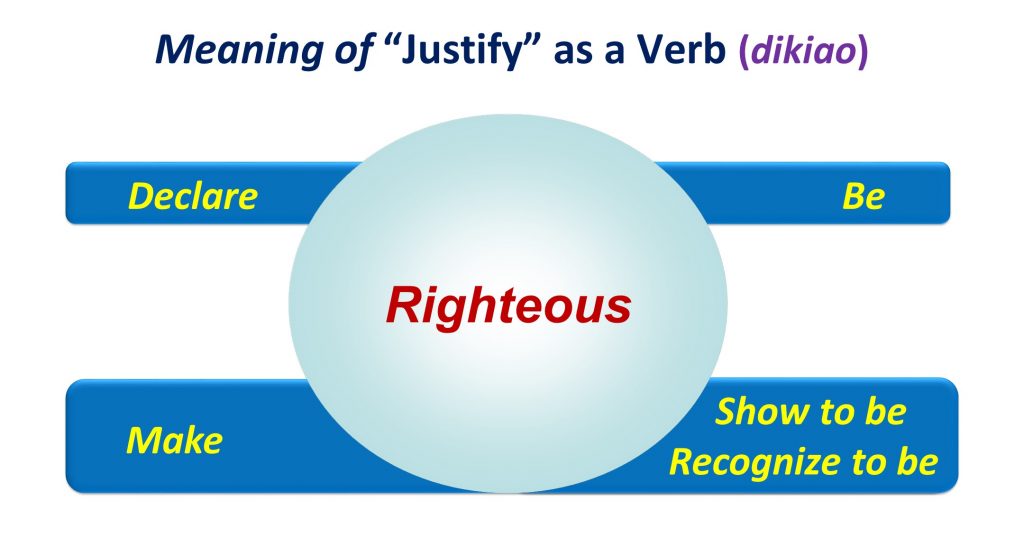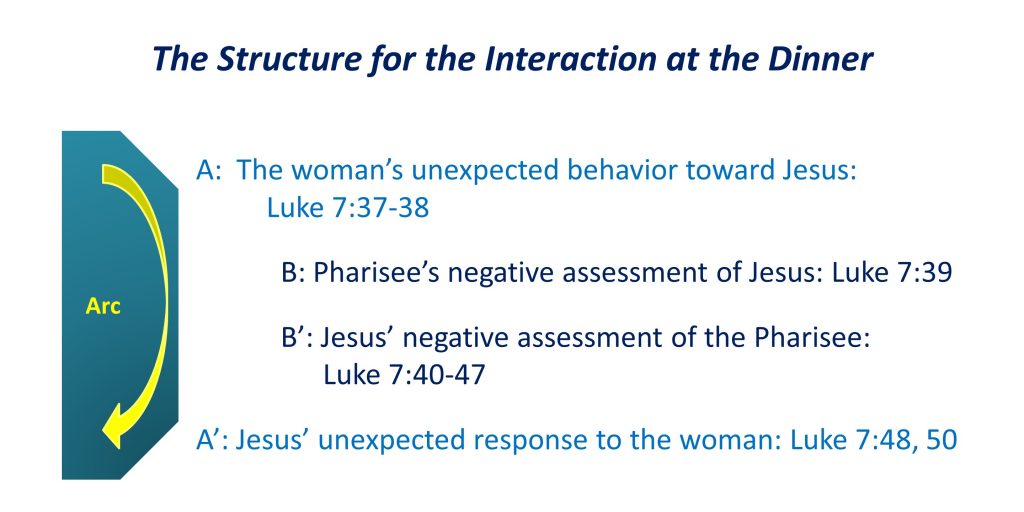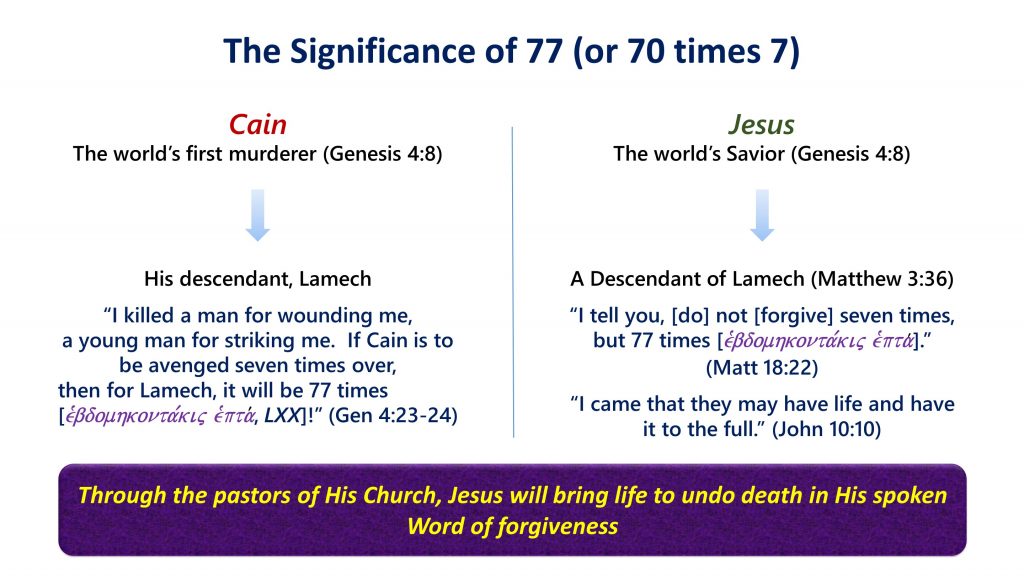 The Parable of the Two Debtors: Luke 7:36-50
The Parable of the Two Debtors: Luke 7:36-50
Background in Luke
Before Jesus tells this parable, we find an unnamed woman in the house of Simon the Pharisee. This is early in Jesus’ public ministry. She washes His feet with her tears and dries them with her hair, kissing His feet and anointing them.
Though similar to Mary in Bethany (John 12:1-8), Luke includes this different account within the flow of his Gospel, which emphasizes specific teachings that Jesus had earlier taught. For example, we find much of Luke chapter 7 focusing on John the Baptizer: verses 18-23, 24-28, 29-30, 31-35. In verses 29-30 and 31-35, we learn of people “justifying” God. “All the people and the tax collectors justified God” (v. 29) and “wisdom is justified by all her children” (v. 35), with “Wisdom” (Sophia) referring to God and His “purpose” (vs. 30) for fallen sinners.
The use of “justify,” when dealing with something external to God as justifying Him, seems strange. Still, this idea exists in both the Old and New Testaments. Psalm 51:4: “That You [God] may be justified by Your words, and may overcome when You are judged.” Romans 3:4 quotes this verbatim from the Septuagint. Here, something external to God, in this case, His words, are justifying Him.
justified by Your words, and may overcome when You are judged.” Romans 3:4 quotes this verbatim from the Septuagint. Here, something external to God, in this case, His words, are justifying Him.
In Luke 7:29 and 7:35, however, people are “justifying” God by recognizing Him to be right, that is, righteous in His judgments. In this case, when relating to John the Baptizer and Jesus, His only Son.
In Luke 7:29, the tax collectors “justified” God by accepting His will, shown to them by John the Baptizer. In Luke 7:35, God’s children “justify” God by accepting His purpose for their lives, which is summed up as a “baptism of repentance into the forgiveness of sins” (Luke 3:3).
The Pharisees, however, did not “justify” God. For they “rejected the purpose of God for themselves by refusing to be baptized by John” (Luke 7:30). Jesus came to call sinners to repentance (Luke 5:32). To reject Jesus, then, was to miss the presence of God’s power in Him (Luke 5: 17-26, 27-32).
This brings us to The Parable of the Two Debtors. Who are the cast members?
- The one indebted little and forgiven little represents the Pharisees found in Luke 7:29-30. For “the Pharisees and the lawyers rejected the purpose of God for themselves by refusing to be baptized by John.”
- The one indebted much and forgiven much represents the woman who anointed Jesus’ feet, who like the tax collectors, acknowledged God’s verdict, and so accepted His forgiveness.
The parable becomes an illustration of contrast, of those who “justified” God and of those who did not.
The Structure of Luke’s Narrative
The Immediate Context
Read Luke 7:36-39
- What is the setting?
- What does the unnamed woman do?
“ointment”: Greek, muron, a general term for “ointment” or “perfume.” If this is nard, the “essential oil” used in Mark 14:3 and John 12:3, this would cost as much as 300 denarii, almost a year’s wages for a day laborer. The purchase of such a gift represents an extraordinary sacrifice, but also reveals this unnamed woman has enough money to be able to do this, implying some source of lucrative income.
- The woman is described as “a woman of the city, who was a sinner” (vs. 37) and again “a sinner” (vs. 39). What is known about this woman, which is left unstated?
- What does the Pharisee conclude about Jesus because He lets this “sinner” touch Him?
Read Luke 7:40
- How does Jesus’ response show He is a prophet?
The Parable
Read Luke 7:40-41
- Reading between the lines, which debtor represents the Pharisee and which one the woman?
- How can we assume Simon the Pharisee would owe less money?
- What’s the obvious and expected answer to Jesus’ question?
Read Luke 7:42
- How does Simon answer?
- What is Jesus doing when He confirms Simon’s answer?
Read Luke 7:44-46
- What did the woman do, which Simon did not do?
Expectations for a Host: Simon could have had a servant wash Jesus’ feet, but this was not a requirement of hospitality. Similarly, a kiss was a common form of greeting, but it wasn’t a necessary social grace. The same can be said for anointing a guest’s head with oil.
Simon violated no social expectations. But neither did he do anything exceptional for Jesus, acting with relative indifference. The implied inference?
“Simon, you did not act discourteously. You were a correct enough as a host, but you didn’t do any special acts of hospitality. This woman, however, has lavished affection on me. Now, why would she do that?”
Read Luke 7:47
- What is Jesus’ answer to His implied question?
- Discuss gratitude in the life of the Christian. How does gratitude affect wanting to be around the One who forgives, Jesus?
- “For she loved much.” How is love the expression of sins forgiven?
- Discuss: Why was the Pharisee’s love missing or little shown?
Read Luke 7:48-50
- What did Jesus do?
- How can He do this?
- How can faith save since, apart from the object of faith (what one believes in), faith itself has no power?
The Parable of the Unforgiving Servant: Matthew 18:21-35
Background in Matthew
Beginning in Matthew 16:13, Jesus is preparing His disciples to become Apostles. He asks them, “Who do people say that the Son of Man is?” In vs. 16, Simon Peter replied, “You are the Christ, the Son of the living God.” In vs. 18-19, Jesus tells Peter: “I also say to you that you are Peter [petros], and on this rock [petra] I will build my church, and the gates of Hades will not overpower it. I will give you the keys of the kingdom of heaven, and whatever you bind on earth will be bound in heaven, and whatever you loose on earth will be loosed in heaven.”
 Jesus will build His Church on Himself being “the Messiah, the son of the living God,” not on the person of Peter. “Petra” makes this clear; otherwise, Jesus would have said, “petros.” “From then on, Jesus began to show his disciples that he must go to Jerusalem and suffer many things” (Matthew 16:21).
Jesus will build His Church on Himself being “the Messiah, the son of the living God,” not on the person of Peter. “Petra” makes this clear; otherwise, Jesus would have said, “petros.” “From then on, Jesus began to show his disciples that he must go to Jerusalem and suffer many things” (Matthew 16:21).
In Matthew 18, “the disciples came to Jesus” (vs 1), where He continues to teach and train His soon-to-be Apostles and the tasks they will do.
“If your brother sins against you, go and confront him in private. If he listens to you, you have won your brother. But if he won’t listen, take one or two others with you, so every word may be confirmed by the testimony of two or three witnesses. If he doesn’t pay attention to them, tell the church. If he also ignores the church, let him be like a Gentile and a tax collector to you. I assure you: Whatever you bind on earth will be bound in heaven, and whatever you loose on earth will be loosed in heaven.” [Matthew 18:15-18]
In Matthew 16, Jesus used the singular “you” when He spoke to Peter. In Matthew 18, He uses a plural “you” (y’all, y’ins). In vs. 21, Peter responds to Jesus, “Lord, how many times should I forgive my brother who sins against me? As many as seven times?” The question about how often he should forgive shows Peter understands Jesus is entrusting him to deliver God’s forgiveness to others on earth, for “whatever you [y’all] loose on earth will be loosed in heaven.”
The rabbis in Jesus’ day taught that forgiving someone three times for the same offense was generous. “If a man commits a transgression, he is forgiven the first, second, and third time; the fourth time he is not” (Babylonian Talmud, Yoma, sections 86b, 87a). So, when Peter brings up forgiving seven times, he must have thought himself to be extremely generous (Matthew 6:12, 14-15). Such thinking, however, is missing the point. In his future role as a pastor, the forgiveness he is to speak to his “brother” when he is repentant is without limit. For Jesus then tells him, “I do not say to you seven times, but 77 times.”
To ensure Peter realizes how many times the pastors in His Church are to bring God’s forgiveness to their “brothers,” Jesus tells a parable.
The Parable
Read Matthew 18:23
- What does this parable help us understand?
Read Matthew 18:24
“ten thousand talents”: Back then, 10,000 was the highest figure used in arithmetic; the talent was the highest amount of currency, equaling the value of about 75 pounds of silver. By stacking the two highest units of measurement together, Jesus is really saying the debt the servant owes in beyond human comprehension. In other words, he can never pay off the debt, which is the point.
Read Matthew 18:25-27
- What are the implications of a master who allows a servant to amass such a huge debt?
- Instead of selling the servant and his family into slavery, what does the master do?
- What are the implications of punishment or forgiveness coming to the family unit, instead of only the individual offender?
Read Matthew 18-28-30
- What do the servant’s actions show about what the servant believes about his master forgiving his debt?
- Instead of mercy, which was shown to him, how does this servant act toward another
Read Matthew 18:31-33
- How does the master respond to the servant’s ruthlessness?
- What was the servant supposed to do instead?
- What are the implications for Peter, a future pastor in Christ’s Church?
Read Matthew 18:34-35
- What is Jesus’ warning to those future pastors in His Church?



